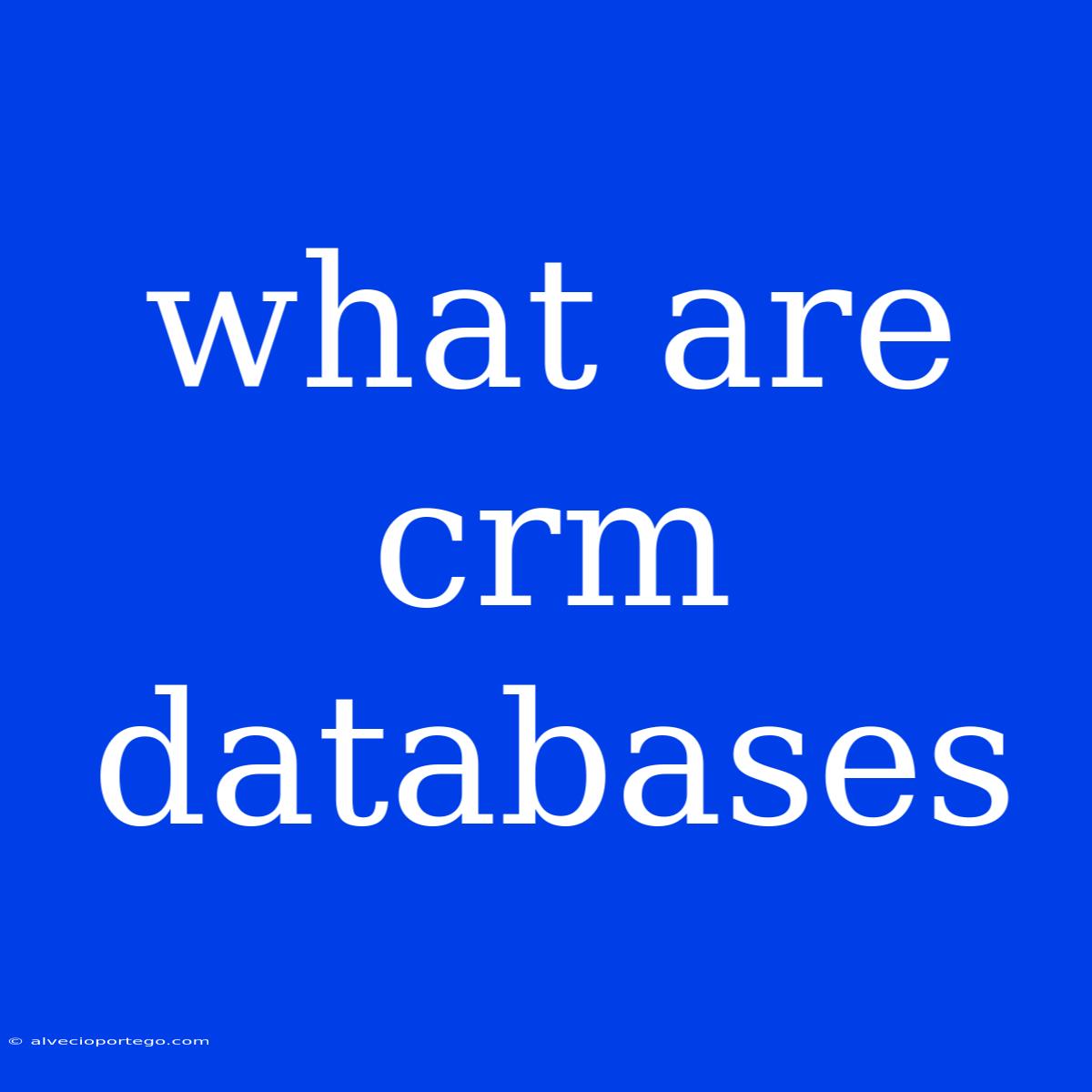What are CRM Databases?
A CRM database, or Customer Relationship Management database, is a centralized repository that stores all your customer data in one place. It acts as a single source of truth for your customer interactions, helping you understand your customers better and providing a platform for managing your relationships with them.
What Information Does a CRM Database Store?
CRM databases store a wide range of information about your customers, including:
- Contact Information: Names, addresses, phone numbers, email addresses
- Demographics: Age, gender, location, interests
- Purchase History: Products purchased, order dates, order values
- Communication History: Emails sent, phone calls made, website visits
- Customer Support Interactions: Tickets submitted, resolutions provided
- Feedback and Surveys: Customer reviews, feedback forms, satisfaction ratings
- Marketing Preferences: Opt-in status for emails, SMS messages, and other marketing channels
- Social Media Activity: Usernames, posts, engagement with your brand
Benefits of Using a CRM Database:
- Improved Customer Insights: Gain a comprehensive view of each customer and understand their needs, preferences, and buying patterns.
- Personalized Customer Experiences: Deliver tailored marketing messages, product recommendations, and support based on individual customer data.
- Efficient Sales Processes: Track leads, manage opportunities, and automate tasks to increase sales productivity.
- Enhanced Customer Service: Provide faster and more effective support by having access to customer history and previous interactions.
- Targeted Marketing Campaigns: Reach the right customers with the right message at the right time, maximizing ROI.
- Data-Driven Decision Making: Use customer data to make informed decisions about product development, marketing strategies, and business operations.
Types of CRM Databases:
- On-Premise CRM: Software installed on your own servers.
- Cloud-Based CRM: Software hosted and accessed through the internet.
- Open-Source CRM: Software with publicly available code that can be customized.
Choosing the Right CRM Database:
Selecting the right CRM database depends on factors such as:
- Size and complexity of your business
- Budget constraints
- Technical expertise
- Specific business needs
With the right CRM database in place, you can cultivate stronger relationships with your customers, enhance your marketing efforts, and ultimately achieve better business results.

